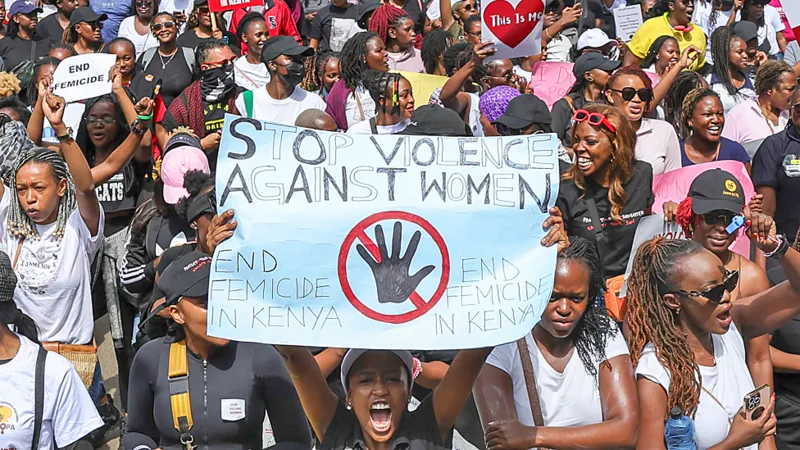 |
| Image: AFP via BBC News |
A clip on social media captured the entrenched misogyny in Kenya, highlighting the alarming rise in female killings and violence against women. Two men were filmed arguing about the need for a nationwide march against femicide and other violence against women, with one complaining that men have suffered because of women and that women just use men for their money. This snippet was shared by renowned Kenyan activist Boniface Mwangi, who said that as a man and father, these men don't speak for the men he knows.
Felix Kiprono, head of media at data analysis and visualisation company Odipo Dev, has been appalled by the reaction to its findings, particularly on social media, which is sometimes described in Kenya as a "manosphere" - a network of online platforms focusing on the promotion of masculinity and opposed to feminism. He told the BBC that the blowback had been across all platforms, not just on Twitter but also on TikTok, which is typically known as a safe space.
With the report now in the public domain, he and his team have received many requests for media interviews. He says it is difficult to get men to agree to talk about this matter publicly and that men have shown little inclination to become involved in discussions online on the issues the report highlights. He also notes that there seems to be a massive disparity in the male versus female attitudes towards gender-based violence in general.
One man chosen to speak out is Kenyan DJ, podcaster, and TV host Moses Mathenge, popularly known as "DJ Moz." Two weeks ago, he was one of the first to denounce femicide, posting a lengthy video on his social media platforms, along with the words: "Femicide This needs to STOP." He says it took his colleague, podcast producer Kate Wangila, to get him to take a stance and that it is time for religious institutions to step up and fight misogyny in the predominantly Christian country.
However, Mr. Kiprono believes it will take a long time to shed toxic masculinity from Kenyan society. He brings home the point that every time a woman wants to leave her home, she has to factor in measures to ensure that she remains safe - whatever her destination. If she has a car or enough income to take cabs late, she can be more relaxed, but if not, she will probably want to start heading home earlier than her male counterparts.

